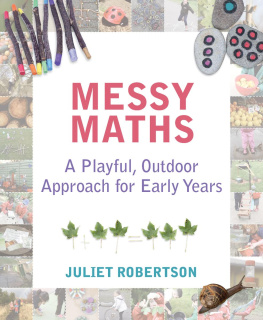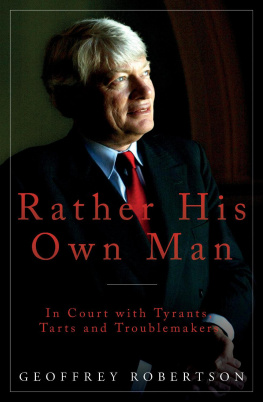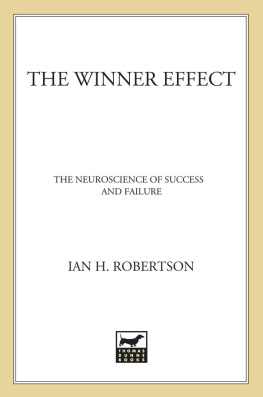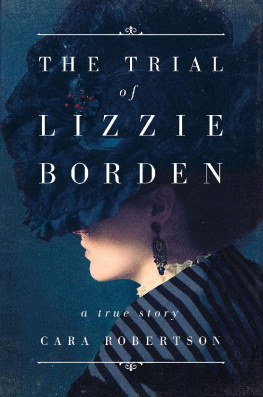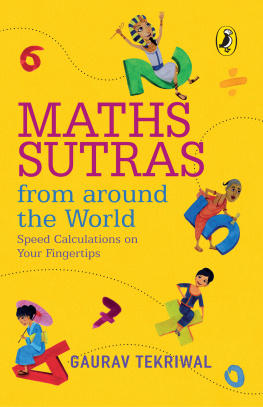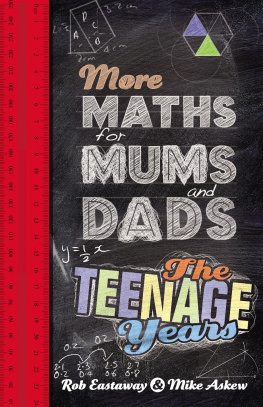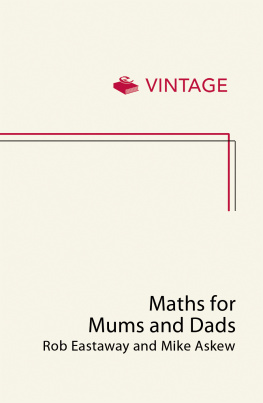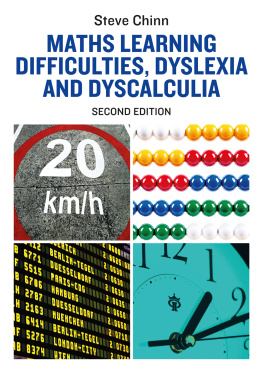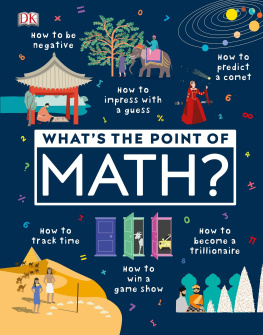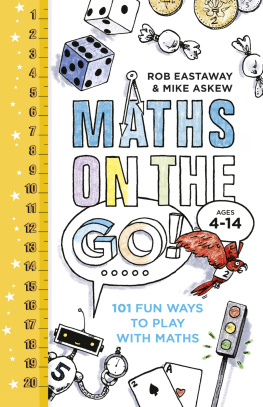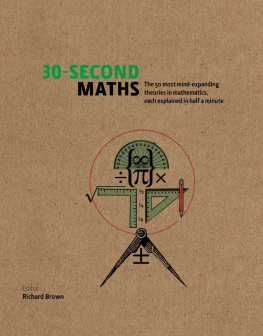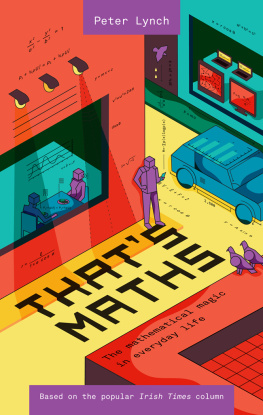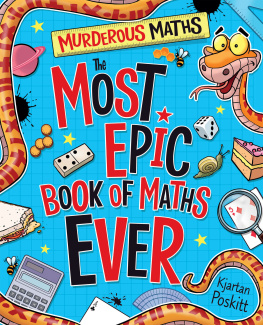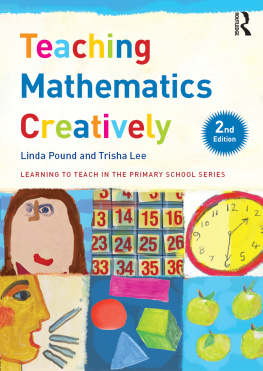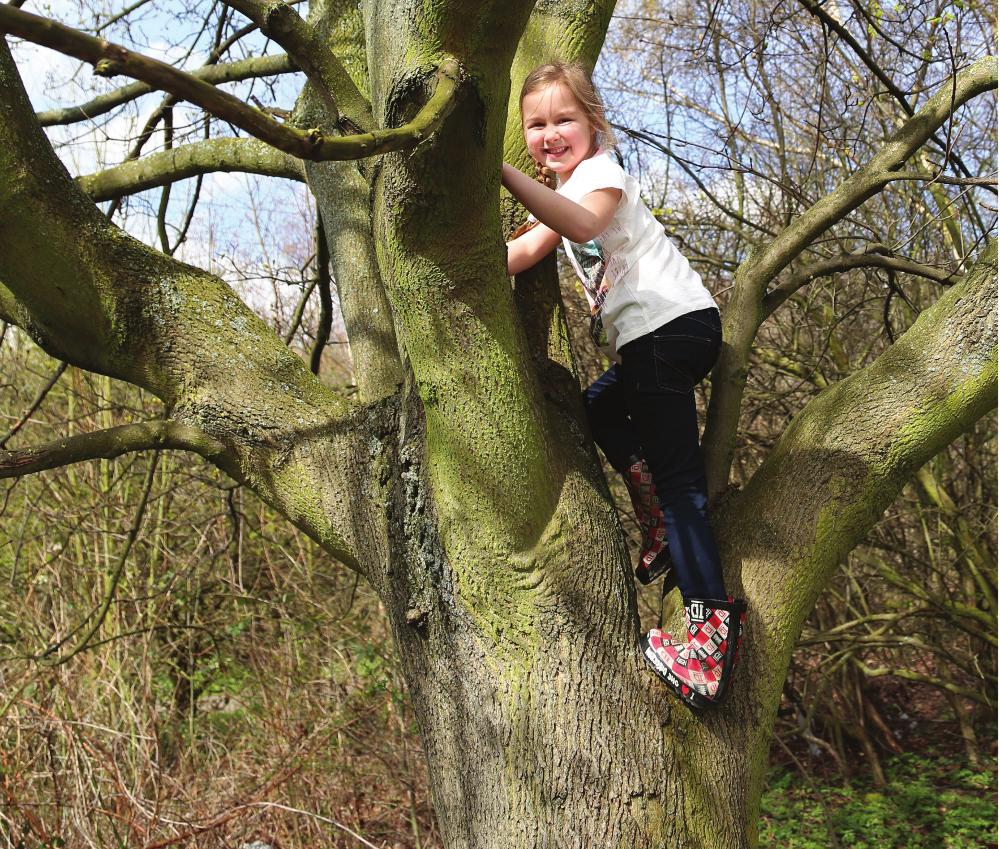Wow, what a fabulous book! Incredibly comprehensive and full of exciting possibilities, it should convince anyone of the huge potential of the outdoors.
Messy Maths will motivate the reader to harness the outdoors special nature for embedded, meaningful mathematical thinking and satisfying, deep-level learning I particularly love the mathematical garden. Why would you stay indoors?
Jan White, mudologist and consultant for outdoor provision in the early years
Even if only a fraction of the ideas contained in this book are put into practice, they will still make a huge difference to childrens knowledge and understanding of maths. What really struck me whilst reading this book was a recognition of the problems we create for ourselves with older children because we dont spend enough time developing their conceptual understanding leading to situations in which 10- and 11-year-olds have no real concept of what a metre actually looks like, or what a kilogramme feels like. Through her practical, easy-to-apply and in most cases zero-cost strategies, Juliet Robertson offers the perfect solution.
Rooted in exceptional early years practice, Messy Maths is an indispensable guide to getting maths right not just with our youngest learners, but with all children.
Jonathan Lear, teacher, speaker and author of Guerrilla Teaching
Messy Maths is a wonderful resource! Aesthetically beautiful with its engaging photographs, it is easy and inspiring to read and offers meaningful and practical ideas for exploring maths outside of the classroom.
The most valuable aspect from my point of view is the encouragement to find maths in the everyday outdoors. It is in the recognition of these teachable moments that we, as early years educators, can bring maths to life for young children.
Mairi Ferris, Director, Stramash Outdoor Nurseries
We learn with our hearts and our hands before our heads. That holds true for every aspect of the curriculum and indeed for life but doubly, trebly so for learning the foundations of mathematics at an early age.
Except for a chosen few, I dont believe there is such a thing as a natural mathematician. As with language, music and science, our skills develop organically over time and are grounded in our childhood experiences. Children today have less time outdoors than ever before, with fewer opportunities to try out experiments and play with maths on their own. So its more important than ever that schools take learning outdoors, allowing children to build their foundation of concepts and language naturally and confidently.
This is a great follow-up to Dirty Teaching. It stands alone in its own right, however, giving teachers, child-minders and all educators (including parents) the confidence to see the mathematics all around us and to help children draw out the concepts they are exploring in their play.
I highly recommend Messy Maths to teachers working at all stages and in all manner of early years settings. Youll come away inspired ready to get outdoors and help the children you work with feel super confident in their mathematical language and practical application of mathematical reasoning. I bet youll get better at estimating weights and lengths too!
Cath Prisk, Global Campaign Director, Outdoor Classroom Day
This book is dedicated to my sister, Sophie, who loved maths.
Contents
Most of my class are very confident at climbing trees. One day I had a new little girl who was not so sure. She stood and watched the other children for several minutes before one of her friends shouted for her to come up the tree. Come on, Alex. Its good up here. It is so high and you can see really far to the other side. Another child added, Alex, you look tiny down there. Climb up and you will be big again. Miss Dean will be really small if you climb up.
Alex continued to watch the others, remarking, Miss Dean, its too scary up high. One child, Rylan, said, Its okay, I can come down and help. Rylan climbed down from the tree and went over to Alex. After a little bit of encouragement, Alex began to cautiously climb the tree. Rylan directed her using a host of positional language: Put your foot a little higher and Move to the side by the fat branch.
I was able to expand and support this language throughout the experience, and each time Alex got a little higher you could see her confidence growing more and more. When she had got as high as she could, we talked about what she could see and compared this to being on the ground.
When her mum came to pick her up, Alex was excited to tell her what she had done that day. She described her experience using the positional and size related language she had been exposed to. It was a fabulous learning experience for Alex, Rylan and me.
Louise Dean, early years teacher,
Redgate Community Primary School, Formby, Liverpool
My thanks go to many people who have kindly given their time and support throughout the writing process: Jane Hewitt for behind the scenes support and encouragement as well as the photos; the Crown House Publishing team; Cosy for supplying maths resources; Fiona Lawrie and Fiona Thomson for giving me the opportunity to run many outdoor maths courses in Aberdeen; Mark Paterson for his ongoing patience and support; Julie Lyon for the photo in Idea 1.3; and also Kim Bannister, Alice Buckley, Rachel and Martin Besford, Ezra Blondel, Nicola Drake, Niki Buchan, Marian Cairns, Kierna Corr, Louise Dean, Leyland Fryer-Davis, Unnur Henrys, Mary Maclachan, Clare McClelland, Sarah Occleston, Linda Reed, Lesley Romanoff, Sue Thorburn, Vanessa White, Megan Whitney and Niki Willows.
My thanks go to the following schools, nurseries and gardens whose children and grounds are featured in this book: Darton Primary; Ichijima-Kodomoen Nursery School; Hoyland Common Primary; Adelaide Botanic Garden; Cruickshank Botanic Garden; Kate Greenaway Nursery, Islington; Penguin District School; Little Acorns Day Nursery; Fraserburgh South Park School; Tullos Primary School Nursery; Wellington College, Shanghai and Worsbrough Common Primary.
In Chapters . He is a creator and connector of spaces.
Special thanks go to Amy Sinclair, founder of Active Learning in Maths, for her advice and support. For more information about her work and courses visit: http://www.activelearninginmaths.co.uk.
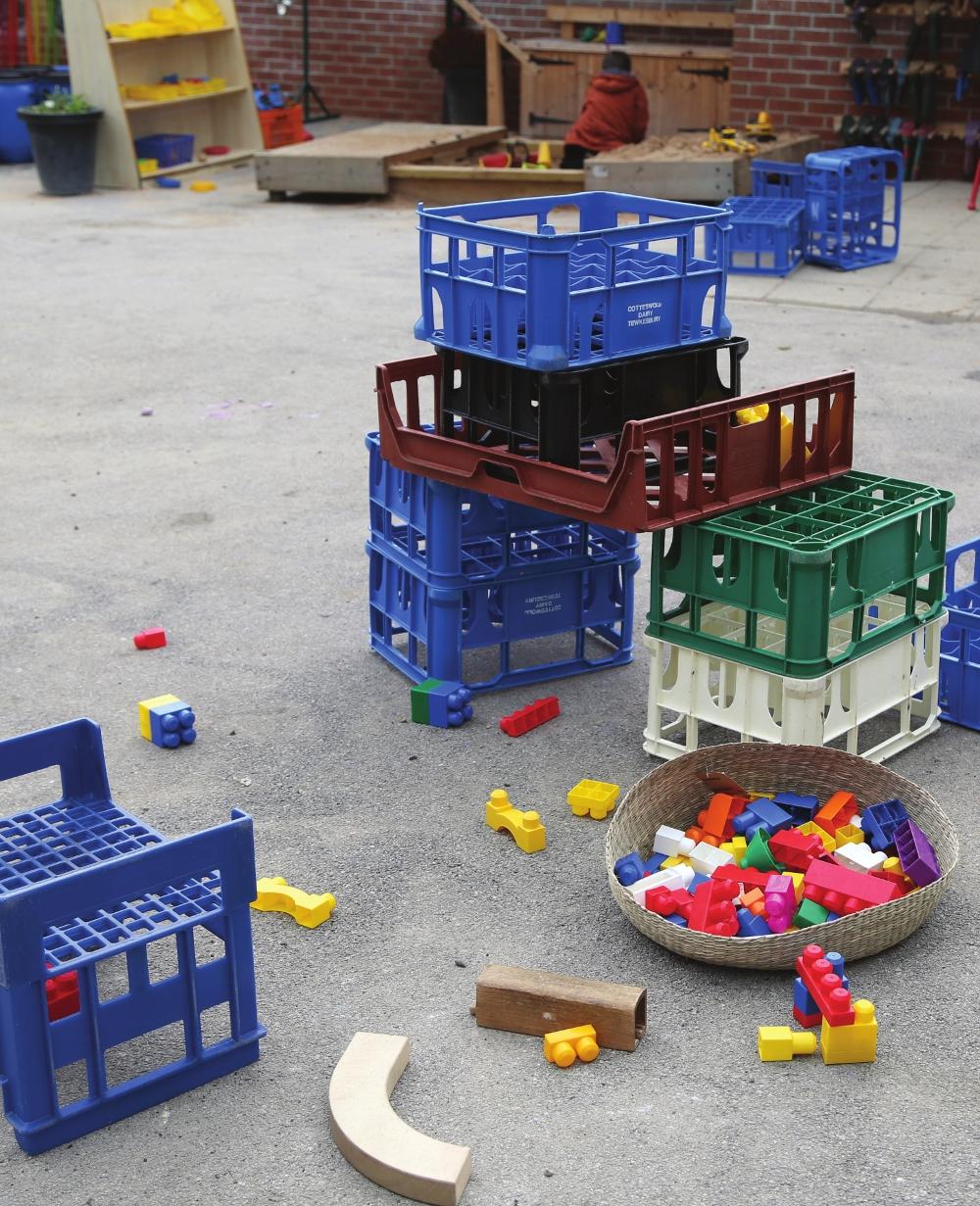
The world is a mathematical place. For young children who are naturally curious there are shapes, numbers, moving objects and patterns to behold, things to count and investigations to be undertaken. It is a creative, challenging and wondrous way of looking at life and exploring the world.
Maths is an inherent part of being human. Framing the world through maths helps us make sense of what is happening and how it affects us. It can provide order and certainty as well as help to explain random events. For little children, maths is not just a cognitive process. It is also a social, emotional and physical experience. A problem shared is a problem halved. Think back to your own experiences of maths at school and how you felt about learning it. Consider how children need lots of physical experiences that embody what maths is all about. The only way to understand the concept of weight, for example, is to repeatedly lift, move and carry a range of heavy and light objects.

